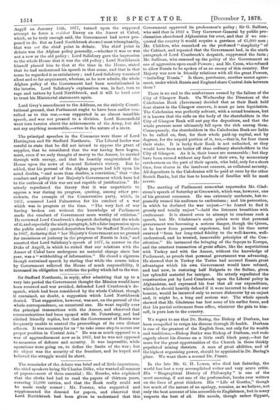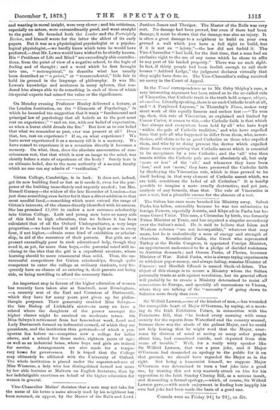In the late Mr. G. II. Lewes, who died last
Saturday, the world has lost a very accomplished writer and very acute critic. His " Biographical History of Philosophy " is one of the most amusing, if not one of the profoundest, books ever written on the lives of great thinkers. His " Life of Goethe," though too much of the nature of an apology, remains, as we believe, not only the best account of him accessible to Englishmen, but in many respects the best of all. His novels, though rather flippant,
and wanting in moral insight, were very clever ; and his criticisms, especially on actors, were extraordinarily good, and went straight to the point. He founded both the Leader and the Fortnightly Review, and himself wrote for the latter the ablest of its early papers. But it was as a physiological psychologist or a psycho- logical physiologist,—we hardly know which term be would have preferred,—that Mr. Lewes would have wished to be chiefly known. His "Problems of Life and Mind " are exceedingly able contribu- tions, from the point of view of a negative school, to the logic of feeling and of thought ; and a word which he first brought into use, " metempirical," to describe what has usually been described as " a priori," or " transcendental," bids fair to told its ground in the language of philosophy. It was Mr. Lewes's knowledge and acuteness in many spheres, that ren- dered him always able to do something in each of them of which its special experts had missed the value or the significance.







































 Previous page
Previous page